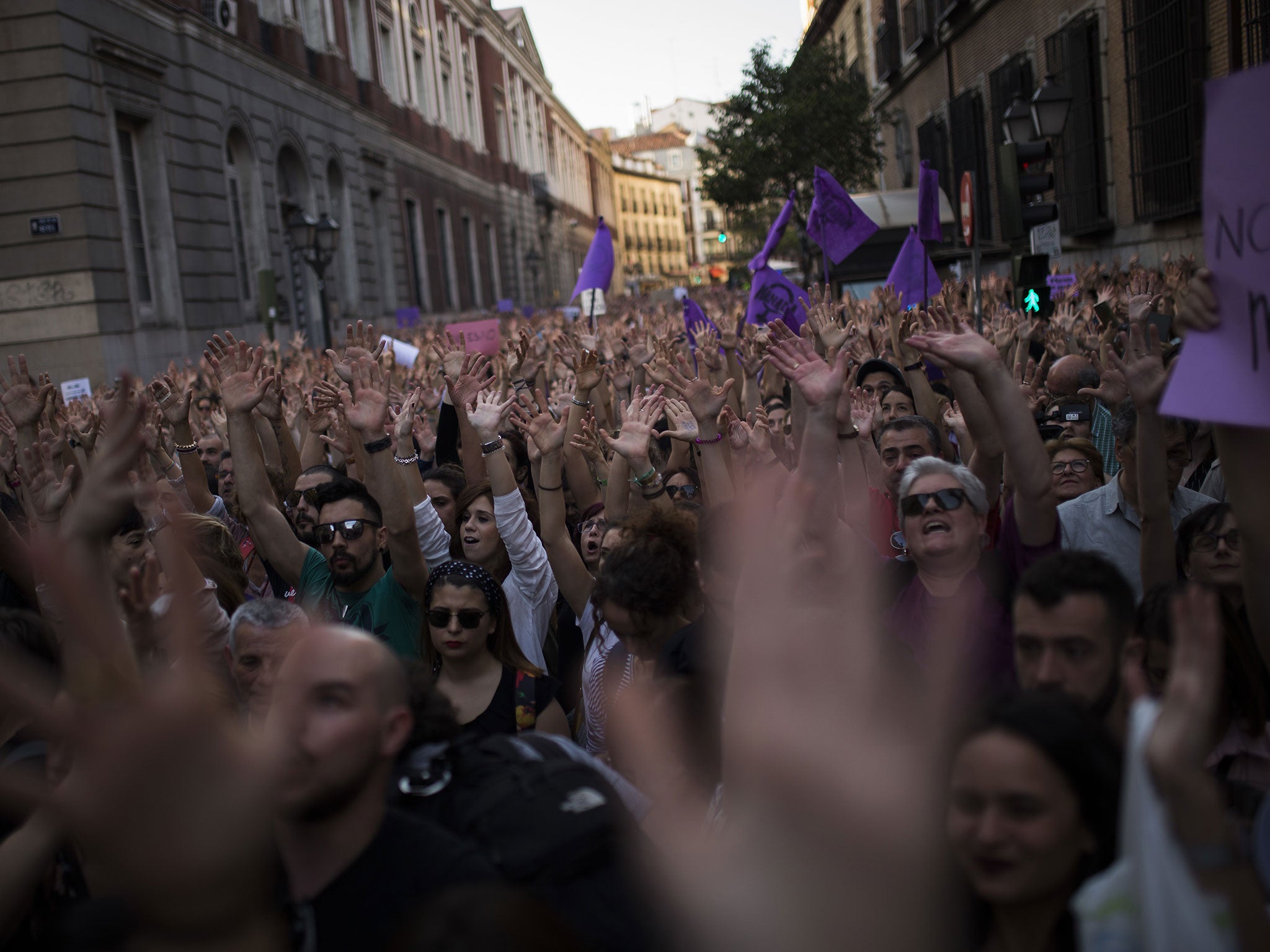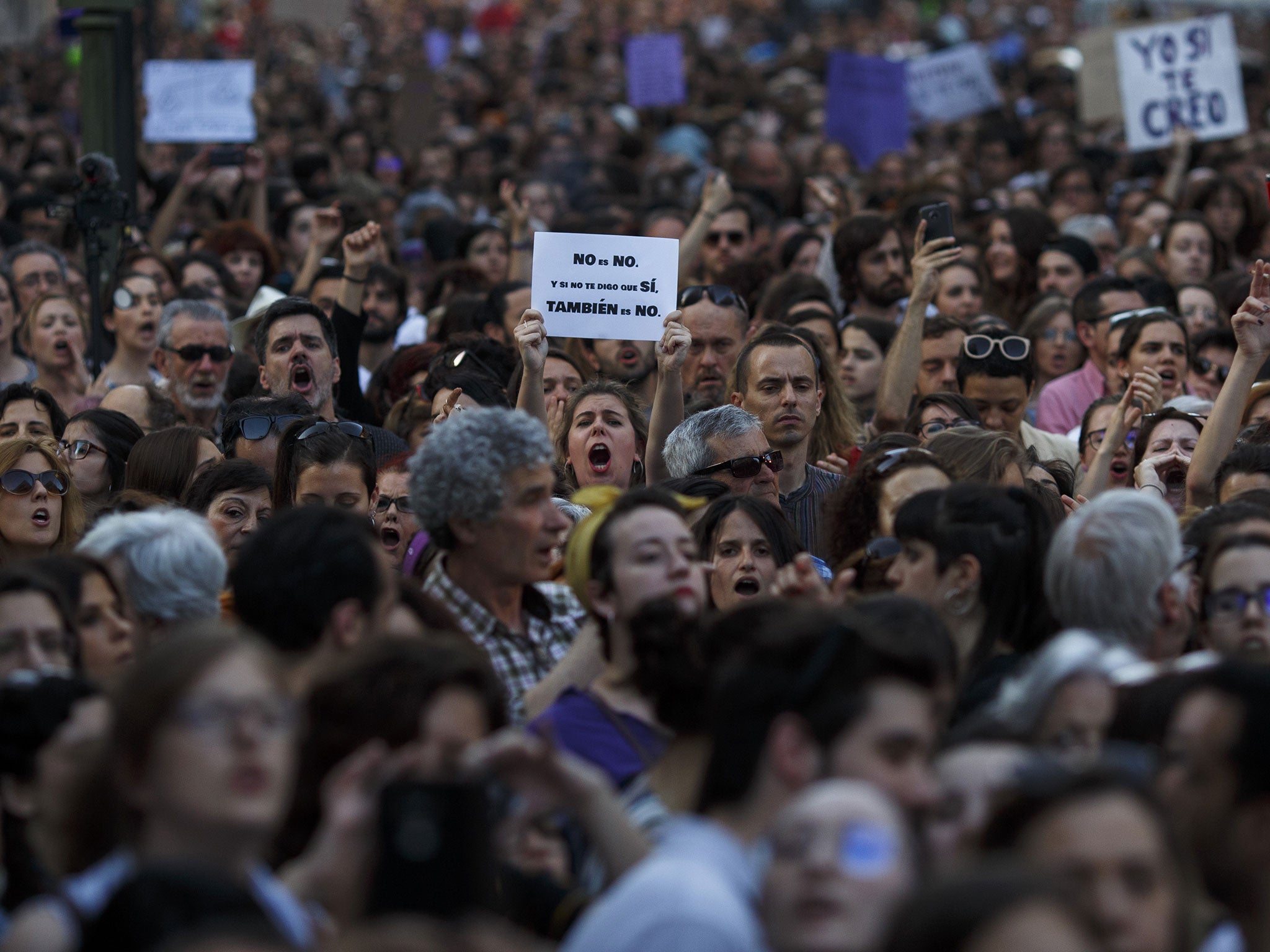Huge protests as Spain jails 'wolf pack' gang for sex abuse, but acquits men of rape
Men recorded videos of attack on mobile phones and laughed about it afterwards on WhatsApp

Protests have erupted across Spain after a court cleared five men of gang raping a teenager at the 2016 running of the bulls festival in Pamplona.
Instead, the court in the northern region of Navarra sentenced the men, who had recorded videos of the attack on their mobile phones and laughed about it afterwards on a WhatsApp group, with the lesser crime of sexual abuse.
Thousands of protesters took to the streets of cities across the country, from Seville to Barcelona, and outside the Justice Ministry in Madrid on Thursday, bearing signs reading “I believe you sister” and chanting: ”It’s not abuse, it’s rape!”
In Madrid, men and women marched along central streets chanting “Shame! Shame!” and “’No’ means ‘No’”. In Barcelona, thousands packed into the central square banging pots and pans and jangling their keys in the air.

The five men, who called themselves “la manada” (the wolf pack) on WhatsApp, were found guilty of sexual abuse, which under Spain’s criminal code does not involve violence or intimidation.
The prosecution had argued violence was used and the 18-year-old victim did not consent to intercourse.
The court chose the lesser charge on Thursday in contrast to the more severe sentences prosecutors sought, which would see the men serve more than 22 years in prison.
However, the court agreed there was no consent because the defendants were in a position of “superiority that curtailed the victim’s freedom.”
One of the three judges in the panel voted in favour of acquitting the defendants, the court said.
Both the prosecution and the defence have announced they would appeal the decision.
The five men, all Spanish citizens between 27 and 30, were friends who travelled to Pamplona to party during the San Fermin festival in July 2016.
According to testimony at the trial, the men offered to accompany the victim to her car but instead hauled her into a building where they filmed their assault with their smartphones. They then stole her mobile phone and left.
The men argued the young woman had consented to intercourse. To support the claim, their lawyers produced detectives’ reports on the victim’s behaviour after the incident, causing outrage among women’s rights groups who said the victim was being judged for her behaviour rather than the attackers'. The defence then withdrew the report.
In addition to the prison time, the court ruled they should jointly compensate the victim €50,000 (£43,000) and refrain from contacting her for 15 years.
The five have been held in pre-trial custody since they were arrested in July 2016.
The president of Spain’s Feminist Party, Lidia Falcon, told La Sexta television the ruling means that rape in Spain is “practically free” of punishment.
Spain’s deputy prime minister, Soraya Saenz de Santamaria, said the government “had to respect” the controversial ruling, while saying authorities must respond to the public uproar.
“I think we have to analyse what we as public authorities must do so that incidents like this don’t happen again in our country,” she said.
The country’s justice minister, Rafael Catala, said the laws in question date from 1995 and should be reviewed to see if “it is convenient to push for their revision.”
Additional reporting by agencies
Join our commenting forum
Join thought-provoking conversations, follow other Independent readers and see their replies
Comments
Bookmark popover
Removed from bookmarks